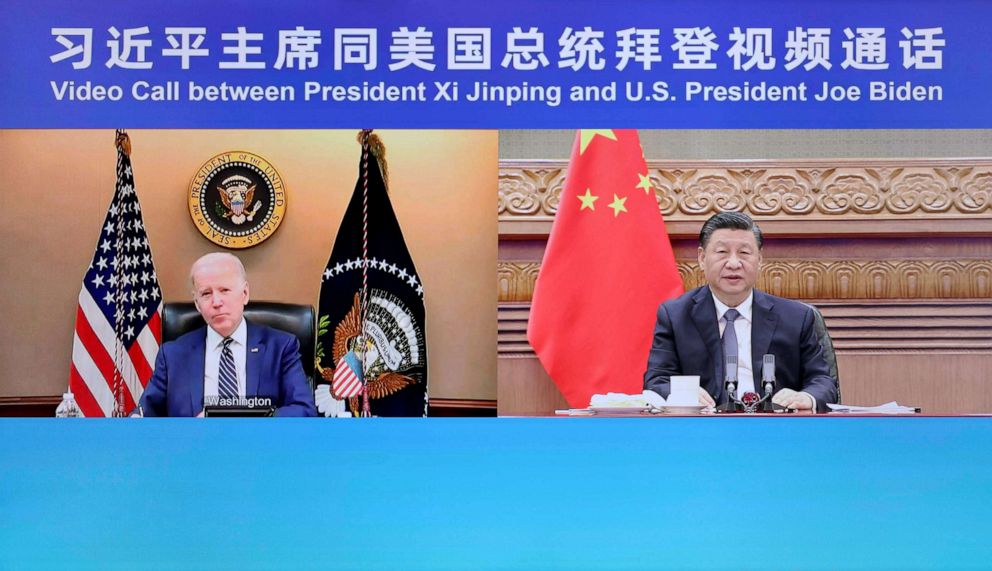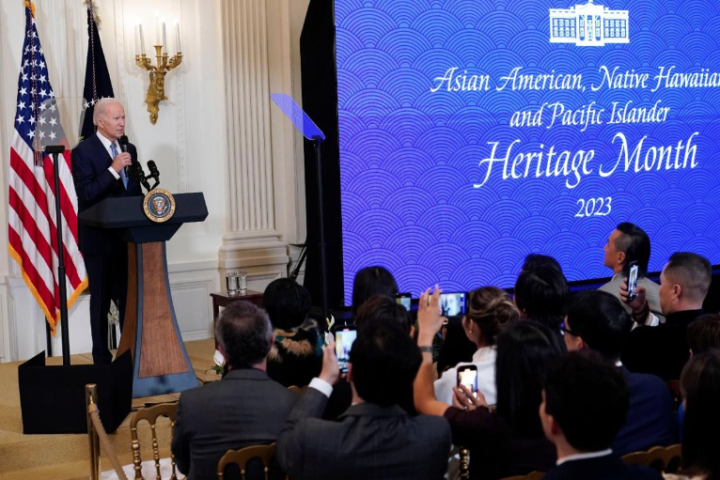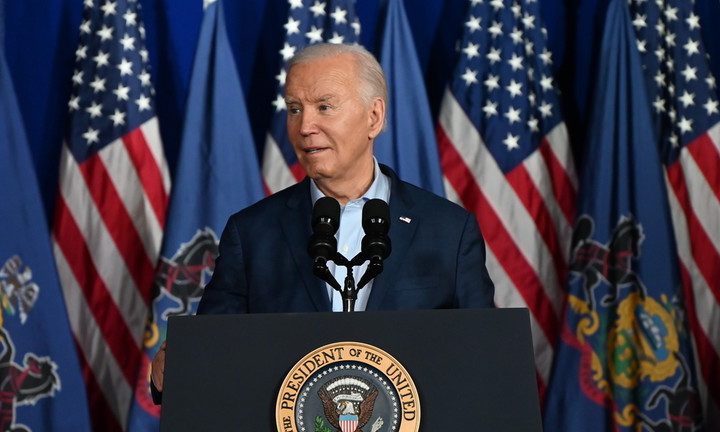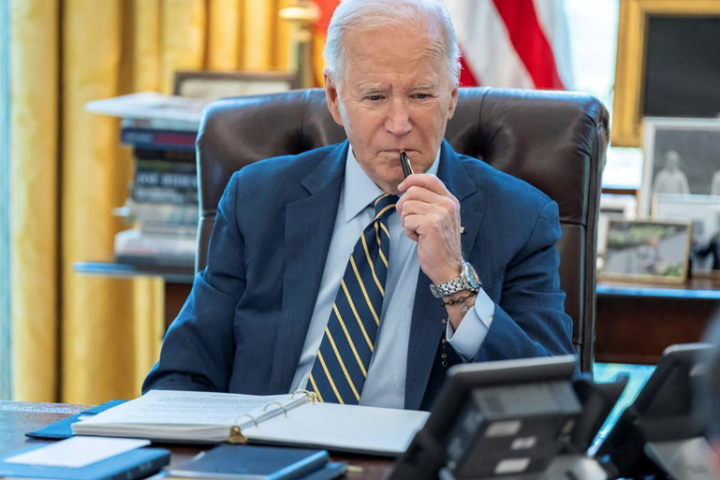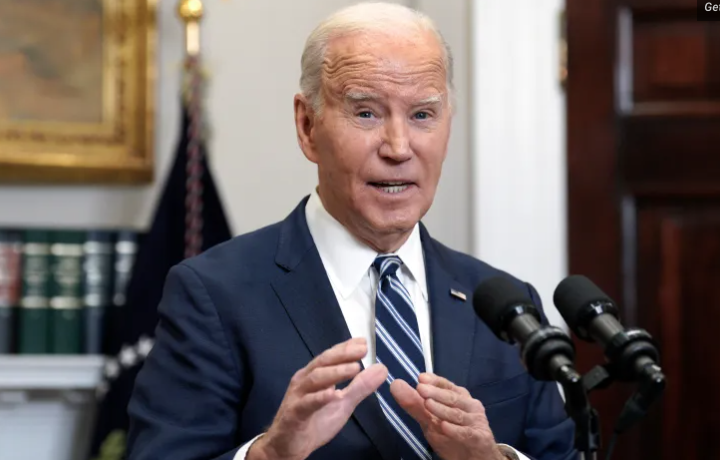US President Joe Biden and Chinese President Xi Jinping will meet for the first time tomorrow on the margins of the G20 Summit. During the meeting, the leaders are expected to discuss Taiwan, human rights, economic competition, the Ukrainian War and the attitude towards Russia, North Korea and nuclear armament, and to reveal their “red lines” on the disputes that are a source of tension.
US President Joe Biden and Chinese President Xi Jinping will meet tomorrow on the margins of the G20 Summit to be held on the Indonesian island of Bali on November 15-16.
The meeting, which coincides with the period of increasing global power competition and tensions between the US and China, will be the first face-to-face meeting of the two leaders since Biden took office.
In the meeting, the leaders are expected to discuss Taiwan, human rights, economic competition, the Ukraine War and the attitude towards Russia, North Korea and nuclear armament, and to reveal their “red lines” on the disputes that are a source of tension.
- President Erdoğan’s statement on the explosion in Istiklal: 6 dead, 53 injured
- Breaking news: An explosion occurred on Istanbul-Istiklal Street in Taksim…
The leaders had previously exchanged visits and face-to-face meetings when both were vice presidents, but had not met since Biden took office early last year, meeting only twice online and once on the phone.

Chinese President Xi had suspended his overseas visits and avoided face-to-face diplomacy for nearly 2.5 years after the Covid-19 outbreak began. Xi hosted Indonesian President Joko Widodo in Beijing for the first time in July, made his first overseas visit to Kazakhstan in September, and after his visit, he went to Uzbekistan and attended the Shanghai Cooperation Organization Summit.
While White House officials state that “Taiwan, human rights, the Ukrainian war and harmful economic practices will be discussed” in the Shi-Biden meeting, it is not expected that the problems will be completely resolved and an important compromise will be reached in the meeting.
TAIWAN ISSUE

In a press conference held after the Senate and House of Representatives midterm elections in his country on November 10, Biden confirmed that he would meet with Xi at the G20 Summit and stated that he would convey to his interlocutor the “red lines” of the US on Taiwan and other issues.
Emphasizing that the US will not compromise on fundamental issues, Biden said, “What I want to do when I talk to him (Xi) is to lay out what the red lines are on both sides; to understand what he sees as critical to China’s national interests, to convey what I believe is critical to the national interests of the United States, and finally to decide whether these two are in conflict.”
At the meeting, Biden was asked whether he would tell Xi about his words, which he had repeated once before, that “the American military will defend Taiwan in the event of a Chinese invasion”.
Biden refrained from saying whether he would make this commitment directly in the meeting, saying, “We will talk to him (Xi) about this. There is no change in our Taiwan doctrine.”
“STRATEGIC AMBIGUITY”
During his visit to Japan in May and in an interview with CBS television in September, the US President had made comments that his country would militarily defend Taiwan against a possible invasion by China.
Biden’s remarks were interpreted as a break from Washington’s policy of “strategic ambiguity” on Taiwan, but after both statements, White House and State Department officials felt the need to correct Biden’s remarks, emphasizing that the US policy on Taiwan had not changed.
Adopting a “One China” policy and recognizing the Beijing administration as the legitimate government of all of China, Washington pledged in the Taiwan Relations Act of 1979 to support the island’s military capacity for self-defense and to oppose unilateral actions to change the status quo in the region.
However, these commitments do not directly obligate the United States to defend Taiwan militarily. This policy has been called “strategic ambiguity” as Washington has refrained from making official statements that the US military will actually defend the island.
PELOSI’S VISIT AND ESCALATING TENSIONS

Biden and Xi’s last phone call on July 28 was overshadowed by US House Speaker Nancy Pelosi’s planned visit to Taiwan, which is in a sovereignty dispute with China.
While the Beijing administration, which sees the island as part of its territory, reacted to the visit of a senior official from the Washington administration, Xi gave the message that “foreign interference in the Taiwan issue is unacceptable” in his phone call with Biden.
“The Chinese government and people’s stance on Taiwan is consistent; protecting national sovereignty and territorial integrity is the common will of more than 1.4 billion Chinese people. The will of the people cannot be violated. He who plays with fire burns himself.”
Pelosi’s visit to Taiwan in early August, despite Beijing’s warnings, brought tensions to a head.
Following the visit, the Chinese military launched military drills around the island, and the drills, which lasted for 7 days, created a de facto blockade around the island. During the drills using real weapons and ammunition, guided missiles fired from the Chinese mainland fell into the waters near Taiwan.
The army spokesperson announced on August 10 that the drills were completed, but military patrols in the Taiwan Strait would continue.
The Chinese administration also announced that it would impose sanctions on Pelosi and her family for the visit and announced that it had halted some bilateral dialog and cooperation mechanisms with the US administration.
The two leaders will have the opportunity to discuss the crisis caused by Pelosi’s visit for the first time during their meeting in Bali.
CHIP WAR
The meeting is also expected to discuss the problems in the recently increasing economic and technological competition between the countries with the two largest economies in the world.
Semiconductor chips and integrated circuits, which form the basis of many technologies from computers to smartphones, airplanes to electric vehicles, household goods to military hardware, have recently become the frontline of the increasing competition between the US and China.
With the Chip and Science Act, which was approved and entered into force in August, the Biden administration announced approximately $ 52 billion in support for the production of semiconductors for domestic and foreign manufacturers investing in the US, while imposing the condition that companies wishing to benefit from the support should not improve the technological capacity of their production facilities in China, revealing the goal of limiting Beijing’s influence in this field.
The Bureau of Industry and Security (BIS) of the US Department of Commerce announced on October 7 that 31 Chinese companies and institutions, including China’s largest memory chip manufacturer Yangzte Memory Technologies and the largest semiconductor hardware manufacturer Naura Technology Group, were placed on the Export Control List.
With the new restrictions, licenses are also required for the export of some high-tech chips and the materials, machinery and equipment required for chip production to China, while US citizens are allowed to work in the chip industry in China.
While the restrictions were interpreted as a declaration of a “chip war” between the two great powers, the Chinese side, arguing that export controls violate international trade rules, interpreted Washington’s steps as “an effort to maintain its technological hegemony”.

THE WAR IN UKRAINE AND THE ATTITUDE TOWARDS RUSSIA
In his statements before the meeting, Biden stated that they observed that China has recently “distanced itself from Russia” in connection with the Ukraine War and interpreted this as a positive development in relations.
During Chinese President Xi’s meeting with German Chancellor Olaf Scholz in Beijing earlier this month, the two leaders condemned Russia’s threat to use nuclear weapons in Ukraine.
Xi’s statement that “the friendship between the two countries has no limits” during his meeting with his Russian counterpart Vladimir Putin at the Beijing Winter Olympics just before the start of the Ukrainian war was interpreted as a tacit support for Moscow’s military operation in Ukraine.
Since the beginning of the crisis, Beijing has refrained from using the words “occupation”, “aggression” and expressions that would mean “condemnation” regarding the war in Ukraine, and abstained from voting in the UN General Assembly’s condemnation resolution.
NORTH KOREA
White House National Security Advisor Jake Sullivan stated that the threat of North Korea’s recent missile tests against the US allies and the American military presence in the region will also be on the agenda.
Underlining that North Korea’s nuclear and missile tests threaten the US, Japan and South Korea and harm peace and stability in the region, Sullivan said Biden will call on Xi to call on China to play a constructive role in this issue.
Emphasizing that the US President will not make concrete demands on this issue, Sullivan said, “If North Korea continues in this direction, the US will need to strengthen its security and military presence in the region. Therefore, it would be in China’s interest to rein in North Korea’s negative tendencies. Of course, whether they choose to do this or not is their own business.”

